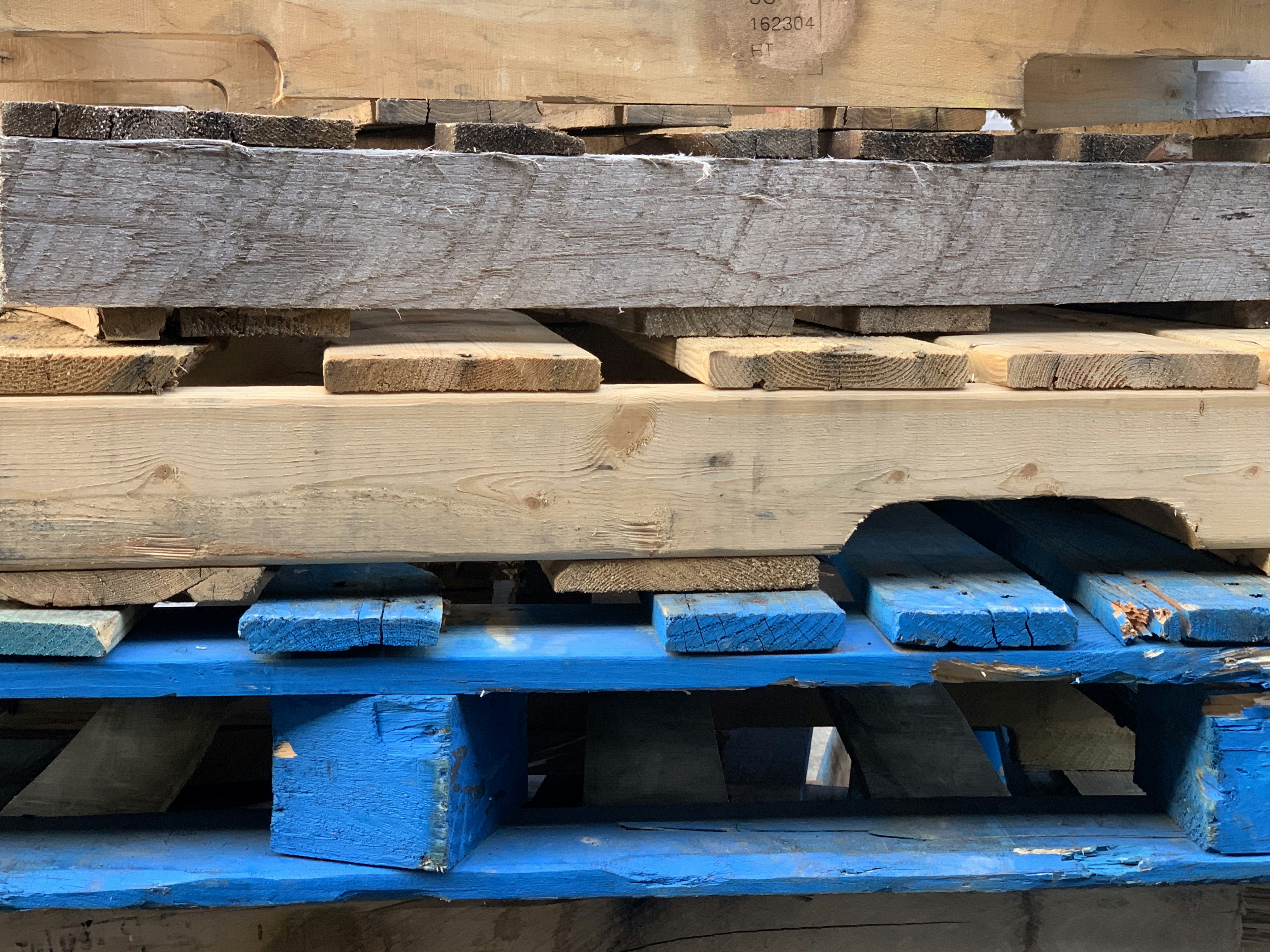Introduction to Wooden Pallets
Wooden pallets have a long and storied history, emerging as a crucial element in the logistics and shipping sectors. Traditionally used for transporting goods, these platforms have become essential for the efficient movement of products across various industries. The concept of the wooden pallet originated in the early 20th century with the increasing need for a standardized solution to streamline the loading and unloading of freight. Their design typically features a rectangular structure made from durable timber, often featuring a deck, support feet, and sometimes a base layer designed to handle significant weight. This basic structure allows for the easy stacking and storing of goods, making them versatile for both storage and transportation.
In today’s interconnected world, wooden pallets are indispensable in logistics, facilitating the safe transport of products ranging from consumer goods to industrial materials. They are widely utilized across sectors including retail, agriculture, manufacturing, and pharmaceuticals. With the growing demand for efficient supply chain solutions, the use of wooden pallets has expanded beyond mere transportation. They have become integral tools for inventory management, allowing businesses to optimize storage space and enhance workflow efficiency.
The sustainable appeal of wooden pallets lies in their natural composition and the possibility for reuse and recycling. Many organizations are now recognizing the environmental benefits of wooden pallets, as they can often be repaired and reused, contributing to a more sustainable supply chain. This shift towards eco-conscious practices has led to innovations in the way wooden pallets are designed and utilized, allowing them to stand out not only as transportation solutions but also as multifunctional tools. As we explore the myriad uses and benefits of wooden pallets, it is clear that their role in modern logistics continues to evolve, marking them as a significant resource in various applications.
Benefits of Using Wooden Pallets
Wooden pallets are increasingly recognized for their numerous advantages in various industrial applications, particularly in shipping and storage. One prominent benefit of wooden pallets is their cost-effectiveness. They are often more affordable than their plastic or metal counterparts, making them an attractive choice for businesses looking to optimize their logistics without compromising quality. The low initial investment, coupled with their long-lasting nature, makes wooden pallets an economical solution for transporting goods.
Durability is another key characteristic of wooden pallets. They are designed to withstand significant weight and pressure, making them reliable for carrying heavy loads. Unlike plastic pallets, which can become brittle over time, wooden pallets tend to endure wear and tear much better, provided they are properly maintained. Their robust construction not only ensures the safety of the products they carry but also minimizes the risk of damage during transit.
Sustainability plays a crucial role in today’s eco-conscious market. Wooden pallets are a renewable resource, as they can be sourced from forests that are managed sustainably. Moreover, the lifecycle of wooden pallets supports the principles of recycling and reusability. When a wooden pallet reaches the end of its useful life, it can often be repaired with minimal effort, extending its longevity and usefulness. Alternatively, they can be recycled into new products, reducing waste in landfills and lessening the environmental impact associated with product disposal.
Several businesses have harnessed the benefits of wooden pallets to enhance their operations. For instance, companies within the agricultural sector frequently utilize wooden pallets as a cost-effective and sustainable choice for transporting produce. Similarly, retailers appreciate wooden pallets for their ease of handling and storage efficiencies, which lead to improved inventory management. The versatility of wooden pallets thus not only supports economic benefits but also aligns seamlessly with sustainability goals in the modern marketplace.
Innovative Uses for Wooden Pallets
Wooden pallets, often seen as simple transportation platforms, have emerged as a popular resource for creative home décor and innovative furniture design. Their versatility allows for countless repurposing options, appealing to both DIY enthusiasts and eco-conscious consumers alike. One of the most common uses for wooden pallets is in the creation of rustic furniture pieces. Pallet sofas, tables, and beds can be effortlessly constructed with minimal tools and skills, allowing individuals to design unique statement pieces that reflect their personal style.
In addition to furniture, wooden pallets are being utilized in various gardening applications. Gardeners have found that pallets can serve as functional planters, vertical gardens, or even trellises for climbing plants. This innovative usage not only saves space but also adds an aesthetic charm to any outdoor space, making them increasingly popular among urban gardeners facing space constraints.
Artists have also embraced the creative potential of wooden pallets, repurposing them for unique art projects. From creating wall art to functional sculptures, the natural wood grain and rustic aesthetic provide a distinct visual appeal. Furthermore, craft businesses are frequently incorporating wooden pallets into their products, offering everything from home accessories to seasonal decorations. These enterprises often highlight the sustainability aspect of their creations, attracting consumers who prioritize eco-friendly practices.
Moreover, the trend of upcycling wooden pallets has paved the way for numerous DIY projects, which can easily be found online. Tutorials on transforming pallets into stunning items, such as mudroom benches or wine racks, inspire people to explore their creativity while promoting sustainability. The variety of ways in which wooden pallets can be utilized reflects their adaptability and the growing trend of environmentally conscious living.
Sustainability and Environmental Impact
Wooden pallets play a significant role in promoting sustainability and mitigating environmental impacts when compared to traditional alternatives such as plastic and metal. One of the primary advantages of wooden pallets is their renewable nature. Sourced from sustainably managed forests, the timber used for their production can help in harnessing resources responsibly. Practices such as reforestation and selective logging further enhance the sustainability of timber sourcing.
Furthermore, wooden pallets are biodegradable, which reduces their long-term impact on landfills. In contrast, plastic and metal pallets, which remain in the environment for hundreds of years, contribute to pollution and resource depletion. According to research, a wooden pallet typically has a carbon footprint that is significantly lower than its plastic counterpart, owing to the natural carbon sequestration process associated with living trees. This process inherently makes wooden pallets a more environmentally friendly option.
Recycling is another key aspect of sustainability in the context of wooden pallets. Many pallets can be reused multiple times before they reach the end of their lifecycle. When they can no longer be used for transport, wooden pallets can be repurposed into a variety of products, ranging from furniture to landscaping materials. This capacity for recycling minimizes waste, transforming what could have been discarded into valuable new items. Statistics indicate that around 95% of wooden pallets are reused or recycled, amplifying their advantages within a circular economy.
In light of these points, wooden pallets stand out as a sustainable choice for businesses aiming to minimize their environmental impact. Their renewable sourcing, ability to biodegrade, and potential for recycling not only contribute to lower carbon emissions but also support sustainable development practices. As industries continue to shift towards eco-friendly solutions, the role of wooden pallets in enhancing sustainability will only grow stronger.



